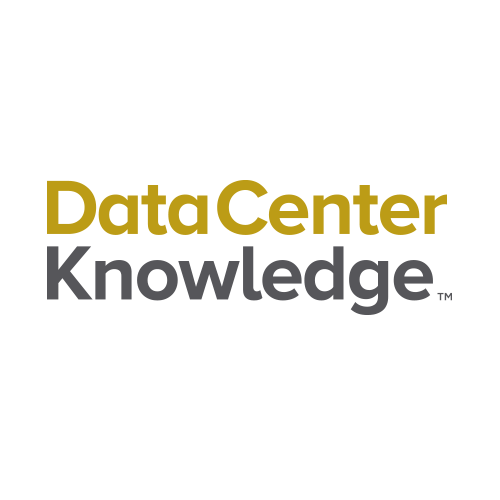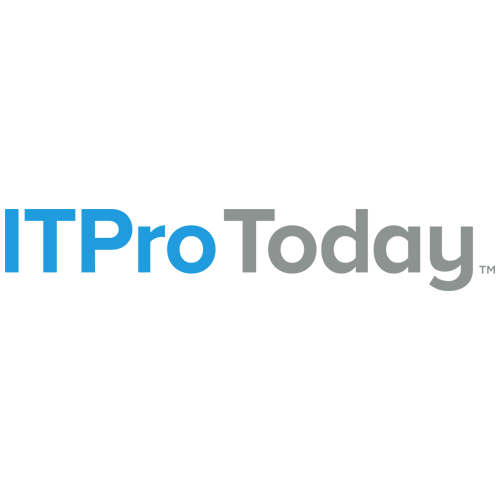
Cirrus Nexus News & Press
Explore our extensive media coverage and industry recognition. This section highlights articles, interviews, and reports featuring Cirrus Nexus in leading publications. Stay informed on how we're shaping the conversation around AI sustainability, cloud efficiency, and digital infrastructure innovation.
AI Tool Aims to Help CIOs Monitor Carbon Emissions from Cloud Operations
“Cloud-management platform Cirrus Nexus launched an artificial-intelligence tool Wednesday to help companies measure and reduce carbon emissions from their cloud operations, an area of increased focus as companies face pressure from shareholders and regulators to meet sustainability goals.”
How the Big Three cloud providers are helping customers manage their energy consumption and carbon emissions
“Our goal is to give our customers a very clear, honest view of how much carbon they're causing to be produced, regardless of what offsets, what carbon credits CSPs buy,” [said Cirrus Nexus CEO Chris Noble].
Cut the carbon: It’s time for environmentally conscious cloud operations
“Companies are increasingly conscious of their impact on the environment and striving to be more sustainable. However, many fail to recognize the scope of their IT cloud usage and its associated carbon footprint.”
Pathways to a More Sustainable Data Center
"Chris Noble, CEO and co-founder of Cirrus Nexus, says for a company to achieve a truly sustainable environment, they need to understand and develop a comprehensive system that incorporates accurate and measurable metrics of their environmental footprint.
Count your carbon
“Given the potential conflicts of interest, you may want a third-party to measure your cloud footprint. One company that claims it has this is Cirrus Nexus, a company that has moved into cloud carbon accounting from straightforward financial measures.”
Divergent Thinking: What It Is, How It Works
“I tend to see the bigger picture — strategically and long term,” said Chris Noble, CEO of New York-based cloud-tech company Cirrus Nexus, who considers himself a divergent thinker. “I look at things from a perspective of not what we can’t do, but imagining what can be and where we need to go,” he said. The quality, which Noble attributes in part to his dyslexia, helps him visualize unique and forward-thinking products for Cirrus Nexus.
Data Center Sustainability Set to Surge
“The research found California tends to be the most consistently clean data center region, but the more significant findings pertain to “the frequency with which regions can fluctuate from clean and dirty over the course of a given timeframe,” Cirrus Nexus CEO Chris Noble told SDxCentral.”
Cirrus Nexus launches AI-based cloud carbon reduction tool
“The tool should allow companies to make trade-offs, and understand the carbon produced as a consequence if they move their workloads to the cheapest cloud, rather than the least carbon-intensive, [Noble] explained.”
Data Center Sustainability in 2023: Top Stories So Far
"According to a recent report by Cirrus Nexus, dynamic factors, such as time of day and year, can significantly impact a data center’s actual carbon emissions. Instead, the report suggests that truly optimizing data center sustainability requires a look beyond average carbon intensity for a nuanced and granular evaluation of energy sourcing patterns on a continuous basis."
Are US data centers fueling climate change? The best (and worst) regions for clean energy
““As consumer demand for technology increases, the demand for power to run those applications and devices also increases,” Cirrus Nexus CEO and co-founder Chris Noble told USA TODAY.”
Greenwashing: What It Is and How to Avoid It
“For a company to avoid greenwashing, it must be transparent about its carbon footprint. And, according to [Cirrus Nexus CEO Chris] Noble, “to be transparent is to impose a cost.””
Big Tech predictions for 2023
“2023 should be a good year for startups that focus on reducing cloud bills, including Cirrus Nexus […] The cloud was supposed to be the ultimate cost saver, but big companies that have made the move have learned that the cost of renting storage, computing power, and other services can add up.”
CIO Challenges in 2023: Drive Value from IT, Combat Economic Headwinds
"As companies begin to apply an actual value to sustainability efforts and look to reduce their carbon emissions, the CIO will have more of a direct impact on the total company, Kelly Fleming, CIO of Cirrus Nexus, said."
The Link Between Green and Expensive Data Center Regions
“So if this isn’t happening already, companies need to include IT orgs in broader sustainability conversations. “Often, IT is a blind spot for enterprises, and they aren’t grasping the magnitude of their IT carbon footprint and don’t have awareness of how they can proactively manage it to make a tangible impact on the planet,” Noble said.”
Gartner IT spending trends, PPI data show mixed economic bag
Kelly Fleming, co-founder and CIO of Cirrus Nexus [...] said the demand for application hosting capacity will continue to grow exponentially. But efficiency gains in semiconductor technology are at risk as chip designers approach the limits of Moore's Law [...]
"As a result, the demand for expanding data centers and bringing new ones online will continue to increase, resulting in upward pressure on hardware and storage costs," Fleming said.
Technical Debt and the Sustainable Data Center
“Fleming emphasized as well that while there are other methods for improving data center sustainability – such as sourcing power from cleaner sources – that businesses can and should pursue where feasible, simply sunsetting unnecessary data resources is one of the easiest and most effective steps companies can take to reduce energy consumption immediately. It doesn't require complex planning or the acquisition of new hardware systems."
Most companies struggle to track their carbon emissions. Here’s what they can do about it
"There are plenty of services on the market that can help. Last year, for example, start-ups Cirrus Nexus […] respectively launched products designed to track emissions in the cloud [...]"
AI is booming – and helping planet Earth burn faster
“As energy demand for IT doubles every four years, bringing online clean, reliable, quality energy will become even more challenging for energy providers. The solutions will require a comprehensive strategy encompassing government regulations, incentive programs, public education, industry investment, commercial adoption, and changes in how organizations operate IT environments.""
California Power Crisis Is New Normal: Elements
“The lowest-carbon cloud-computing power in the US can be found in California and the Pacific Northwest, according to a study from Cirrus Nexus […] The Midwest, with more coal and natural gas on its grids, has higher carbon intensity. Texas, simultaneously a fossil fuel and wind powerhouse, falls in.”
Cloud Monitoring Tools Help CIOs Reduce Carbon Footprint
“For Chris Noble, co-founder and CEO of Cirrus Nexus, the focus for his company has been on an artificial intelligence designed to help companies quantify and shrink the level of carbon their cloud operations produce.”
Here are the most and least carbon-intensive places to operate a data center
“A new report [by Cirrus Nexus] has revealed the most climate-friendly regions in which to operate data centers. The findings point to the challenges holding the sector back from reducing carbon emissions, as well as ways tech companies can mitigate the climate toll of their cloud computing demands.”
Heat Waves Are Shutting Down Data Centers and Breaking the Internet
But without investing in fancy systems like chilled-water systems, organizations can mitigate increased heat by making smarter decisions. For instance, Cirrus Nexus CIO Kelly Fleming recommends that organizations looking to move workloads to the cloud choose data center regions that use renewable energy.
IT's critical role in the upcoming recession
“The good news is that IT departments are well-positioned to cut budgets while still making positive strides in sustainability.”
Why More Enterprises Are Embracing Industry Clouds
“While there is growing interest in industry cloud offerings, Chris Noble, CEO and co-founder of Cirrus Nexus, told ITPro Today that it is important to recognize that industry cloud is not a big step change. As such, he suggests that the expectations around what industry clouds can deliver have to be set and managed accordingly.”
Inflation Reduction Act Breakdown: How Your Data Center Benefits from New Legislation
“The IRA also includes tax credits for battery projects, which could solve the age-old problem of what to do when the sun doesn’t shine and the wind doesn’t blow, as well as providing a more sustainable backup power solution for data centers than diesel generators, said Chris Noble, Cirrus Nexus CEO. “The IRA is expected to result in the construction of 2,300 grid-scale battery plants by 2030,” he said. “This will help reduce carbon emissions by storing renewable energy during peak production.””
Data Center Site Selection: Why Colos and Hyperscalers Are Boosting Their Presence in Spain
““From a strategic perspective, major service providers are looking to assure service continuity by geographically diversifying their operations,” said Chris Noble, cofounder and CEO of Cirrus Nexus, a platform helping companies manage the carbon impact of their cloud footprint.”
Why Software and Data Waste Has to Stop
“While the cloud offers a seemingly endless number of resources to maintain and store data, failing to control and limit data hoarding can affect not just a company’s bottom line but its sustainability goals as well. CIOs have the power to become ESG leaders for their companies by implementing sound policies for managing data growth.”
Are US data centers fueling climate change? The best (and worst) regions for clean energy
““We are currently at a pace where our technological demands by 2040 will far surpass what we already consume today," Noble said.”
IT leader’s survival guide: 11 ways to thrive in the years ahead
“CIOs spend a lot of time determining which vendors and products to license for their departments,” [Cirrus Nexus CIO Kelly] Fleming says. “It’s important to avoid becoming trapped in a single vendor’s ecosystem which limits your department’s flexibility and resilience to product shortcomings, outages, price fluctuations, and emerging digital security threats.
CIOs tackle sustainability through cloud migration
““Cloud is definitely more efficient, because you get better density and you’re sharing hardware,” Noble said. “But it doesn’t mean that you’re not causing carbon to be produced.””
Number crunching AI’s carbon costs
“Coming full circle, it may be possible in the future to deploy more energy-efficient AI to help guide more efficient data center operation to lower – you’ve guessed it – AI’s carbon footprint. Today, there’s already software available, provided by Cirrus Nexus, which data center operators can use to assign a cost to carbon and propagate this through an AI algorithm.”
Things to Keep in Mind When Building a Data Center in 2023
““Data centers, particularly hyper-scale data centers, need to assure that future resources will be available, which may include operating their own sources of energy and water. Ensuring uninterrupted operations will require data center operators to look at grid-scale energy storage,” [Chris Noble] said.
Cirrus Nexus Introduces Industry-First Carbon Reduction Tool for Cloud Operations
“Cirrus Nexus TrueCarbon will help companies accomplish ESG objectives and apply a sustainability lens to cloud operations.”






















